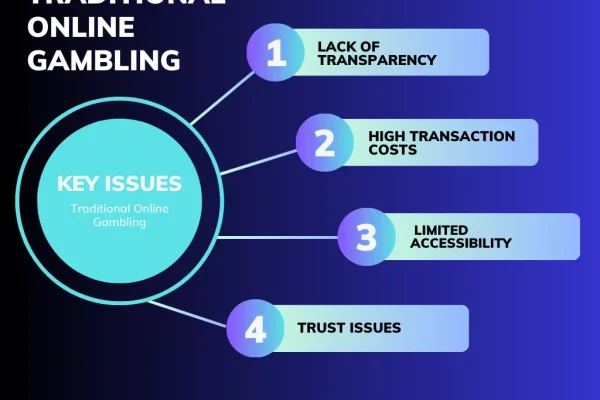The glittering lights of Las Vegas and the historic opulence of Monaco have long defined the world of gambling tourism. But honestly, the map is being redrawn. A new wave of destinations is emerging, rewriting the rules of the game entirely.
We’re talking about countries in Asia, Latin America, Eastern Europe, and even parts of Africa. Places where rapid economic growth is colliding with a rising middle class hungry for new forms of entertainment. The old guard’s monopoly is over. Here’s the deal with the new global players.
The Allure of the “New Frontier”
So, why the sudden shift? Well, it’s not so sudden. It’s a perfect storm of factors. For starters, many established markets are saturated. They’re also, you know, expensive. A weekend in Macau can cost a small fortune. Emerging markets, on the other hand, offer a sense of discovery—a “new frontier” vibe that’s incredibly appealing.
Governments in these nations see casino tourism development as a golden ticket. It’s not just about the direct revenue from the gaming floors. It’s about filling hotels, boosting restaurants, creating jobs, and putting their country on the international map. It’s a full-scale economic catalyst.
Regional Hotspots: Where the Action Is
Let’s get specific. The trends aren’t uniform; each region has its own flavor, its own unique draw. The landscape is incredibly diverse.
Southeast Asia’s Integrated Resort Boom
Singapore blazed the trail with its stunning Marina Bay Sands, proving that a high-end, strictly regulated model could work. Now, the Philippines is a powerhouse, with Entertainment City in Manila drawing massive crowds from China, Korea, and beyond.
Vietnam is the one to watch, though. They’re allowing locals to gamble in certain integrated resorts, a huge shift. Think massive complexes in places like Phu Quoc—not just casinos, but theme parks, luxury shopping, and world-class shows all in one. It’s a whole ecosystem.
Latin America’s Varied Appeal
Down in Latin America, the scene is a bit more… textured. You have the glitz of Panama City, a long-standing hub. Then there’s the raw potential of Brazil, which has been flirting with legalization for years. The sheer size of its population makes it a sleeping giant for the gambling industry in developing countries.
Meanwhile, countries like Peru and Colombia are building out their offerings, often focusing on specific niches or catering to regional tourists. It’s less about competing with Vegas and more about creating a compelling local destination.
Eastern Europe and Africa’s Nascent Markets
In Eastern Europe, places like Georgia and Croatia are becoming unexpected players. They’re attracting tourists from neighboring countries where gambling is more restricted. The casinos are often smaller, more intimate, but they’re part of a broader tourism package that includes historic sites and beautiful coastlines.
And Africa? It’s the most nascent of all, but the potential is staggering. South Africa has a mature market, but the real speculation is in places like Kenya and Nigeria. The challenge here is infrastructure, but the growth of the urban middle class is undeniable. It’s a long-term play, for sure.
Key Drivers Fueling the Growth
It’s not just about building a casino and hoping they come. Several powerful forces are converging to make this happen.
- The Rise of the Middle Class: This is the engine. More disposable income means more people can afford international travel and entertainment. They’re looking for new experiences, and a weekend at a resort with a casino fits the bill perfectly.
- Government Legislation and Economic Strategy: Many governments are actively crafting policies to attract investment. They’re offering tax incentives and carving out special zones for these massive projects. It’s a calculated move to boost the entire economy.
- Infrastructure Development: You can’t have tourism without airports, roads, and hotels. Billions are being poured into infrastructure, making these once-remote destinations accessible to international travelers.
- The Digital Influence: Online sports betting and casinos are acting as a gateway. Someone who bets on their phone might be more inclined to visit a physical casino while on vacation. The lines between digital and physical are blurring.
Not All Glitter: The Challenges and Realities
That said, this gold rush isn’t without its pitfalls. The path is littered with challenges that can’t be ignored.
Regulatory frameworks can be shaky. A country might change its laws overnight, creating uncertainty for investors. There’s also the ever-present risk of corruption and money laundering, which requires robust oversight—something that’s still developing in many of these places.
And then there’s the social cost. The potential for increased problem gambling is a serious concern. Many of these nations lack the support systems and public health campaigns that more established markets have. It’s a delicate balancing act for policymakers: reaping the economic rewards while mitigating the social harm.
The Future: Beyond the Casino Floor
So, what’s next? The future of gambling tourism trends in emerging markets isn’t just about more slot machines. The successful destinations will be those that offer a holistic experience.
Think about it. The modern tourist wants it all. They want to see a concert, relax at a spa, eat at a Michelin-starred restaurant, and maybe spend a few hours at the blackjack table. The casino is becoming just one piece of a much larger entertainment puzzle. It’s the anchor, not the entire ship.
Sustainability is also creeping into the conversation. How do you build these massive resorts responsibly? How do you ensure the wealth generated actually benefits the local community? These are the questions that will define the next chapter.
The world of high-stakes tourism is no longer confined to a few classic destinations. It’s spreading, adapting, and taking root in new soil. It’s a complex, messy, and fascinating transformation—one that reflects a world where borders are blurring not just for people, but for pleasure and play, too.












